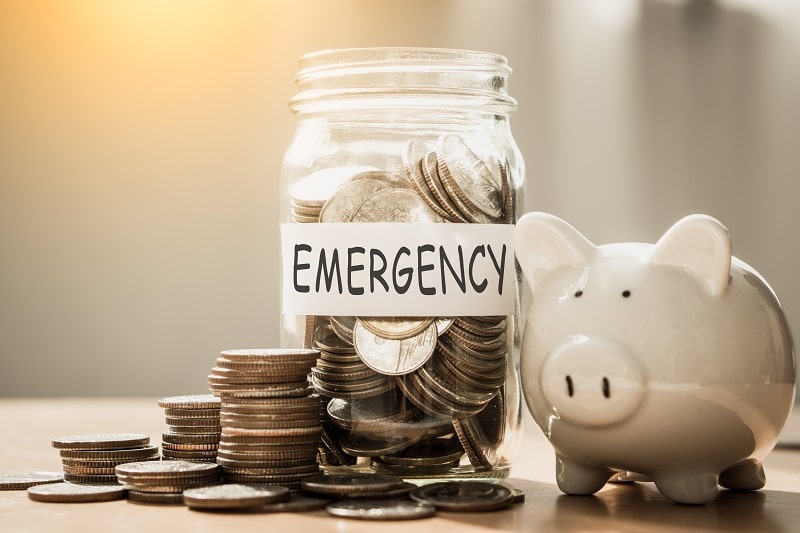The turkey is gone, and the leftovers have been devoured. At last, the holiday shopping season has officially begun. You’re ready to head out on your day off for some much-anticipated retail therapy. You get in your car, turn the key, and out comes a noise of monumental disappointment. You soon find yourself searching for a mechanic and worrying about how you are going to cover this unexpected expense. The shopping excursion is now a blip of a fantasy and reality sets in… you’re going to have to pull out your credit card.
Inflation is still upon us. The increased cost of living is impacting daily decisions and budgets across the board. You’ve been diligent about making your monthly installments on time, but now you find yourself defeated at life’s curveball. This is where an emergency fund could help you be prepared for the unexpected.
The folks at Investopedia, define an emergency fund as a financial safety net for future mishaps and/or unexpected expenses. Your fund should typically cover at least 3-6 months of expenses. However, the larger your fund, the more prepared you are for those untimely emergencies.
Your emergency fund:
1. Should set aside funds every paycheck or pay period to build more quickly
Set up an automatic savings transfer with your employer to make it easier to build up your account. Commit to a regular amount, even if just $5 a week. It all adds up.
2. Should be placed in an account that can be easily liquidated
You want quick and easy access to your funds. Be sure that your monies will be available to you when you need them.
3. Should not be used for vacations or other extravagances
While it may be tempting to look at your emergency fund as an opportunity to offset your next trip to Disney, raiding your emergency fund for unnecessary expenditures will make it more difficult to build your fund. Refrain from using it as a regular piggy bank if you are serious about growing your emergency fund.
4. Take advantage of one-time windfalls such as bonuses and tax returns
Unexpected or expected financial bonuses are not usually included in your regular monthly expenses. Therefore, it would be wise to take advantage of these and set them aside in your emergency fund to help bring that fund to a suitable level more quickly.
So, when is the best time to start that emergency fund? The answer is NOW! While many believe the best time to initiate an emergency fund is once all their bills are paid off, there is no better time to start that savings account than now. An emergency fund will help you maintain your financial goals by allowing you to reserve your household funds for your regular monthly bills. It can also help keep you from adding to your debt by helping you refrain from using your credit cards or other types of loans.
If you feel you need help with starting an emergency fund, consult your financial adviser or debt resolution consultant. Seek the advice you need so you don’t find yourself having to skip the holiday shopping season. You certainly wouldn’t want to have to arrive at your next holiday party empty-handed. You also don’t want to spend the next several months paying for gramma’s holiday gift on that credit card. Enter this New Year with a new resolution, a resolution to be prepared.


